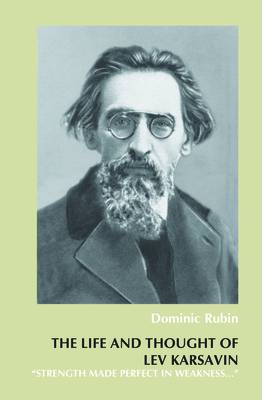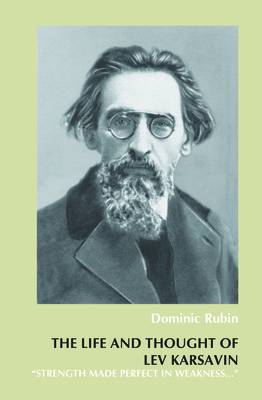
- Afhalen na 1 uur in een winkel met voorraad
- Gratis thuislevering in België vanaf € 30
- Ruim aanbod met 7 miljoen producten
- Afhalen na 1 uur in een winkel met voorraad
- Gratis thuislevering in België vanaf € 30
- Ruim aanbod met 7 miljoen producten
Zoeken
€ 207,95
+ 207 punten
Omschrijving
"At last, Russia has begun to speak in a truly original voice." So said Anatoly Vaneev, a Soviet dissident who became Karsavin's disciple in the Siberian gulag where the philosopher spent his last two years. The book traces the unusual trajectory of this inspiring voice: Karsavin started his career as Russia's brightest historian of Catholic mysticism; however, his radical methods - which were far ahead of their time - shocked his conservative colleagues. The shock continued when Karsavin turned to philosophy, writing flamboyant and dense essays in a polyphonic style, which both Marxists and religious traditionalists found provocative. There was no let-up after he was expelled by Lenin from Soviet Russia: in exile, he became a leading theorist in the Eurasian political movement, combining Orthodox theology with a left-wing political orientation. Finally, Karsavin found stability when he was invited to teach history in Lithuania: there he spent twenty years reworking his philosophy, before suffering the German and Soviet invasions of his new homeland, and then deportation and death. Clearing away misunderstandings and putting the work and life in context, this book shows how Karsavin made an original contribution to European philosophy, inter-religious dialogue, Orthodox and Catholic theology, and the understanding of history.
Specificaties
Betrokkenen
- Auteur(s):
- Uitgeverij:
Inhoud
- Aantal bladzijden:
- 492
- Taal:
- Engels
- Reeks:
- Reeksnummer:
- nr. 33
Eigenschappen
- Productcode (EAN):
- 9789042036468
- Verschijningsdatum:
- 1/01/2013
- Uitvoering:
- Hardcover
- Formaat:
- Genaaid
- Afmetingen:
- 155 mm x 234 mm
- Gewicht:
- 857 g

Alleen bij Standaard Boekhandel
+ 207 punten op je klantenkaart van Standaard Boekhandel
Beoordelingen
We publiceren alleen reviews die voldoen aan de voorwaarden voor reviews. Bekijk onze voorwaarden voor reviews.








